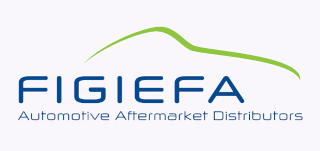Revision of the Motor Vehicle Block Exemption Regulation
In times of rampant inflation, it is clear that effective competition in the automotive aftermarket is essential to keep prices at an affordable level, in the interest of consumers and business operators alike. Aware of this challenge, the European Commission has taken a step in the right direction on the 17th of April 2023, by renewing the Motor Vehicle Block Exemption Regulation (MVBER) and the accompanying sector-specific Guidelines, the European legislation setting the framework conditions for competition in the automotive aftermarket.
Notably, the European Commission acknowledged the critical role that access to technical information plays for repair and maintenance of modern vehicles and made important updates in order to reflect the latest technical developments. In particular, information on Advanced Driver Assistance Systems, Battery Management Systems, and activation codes for replacement parts, which are necessary to properly service the most recent and future electric and connected vehicles, are now qualified as essential inputs that need to be made available to all operators. Importantly, the Commission has also acknowledged that access to vehicle-generated data has become key for aftermarket operators to compete, thereby preparing the ground for future, more practical-oriented legislation materialising this principle.
In this context, it appears that the Commission reviewed its traditional position and recognised that the role and functions of independent operators operating at different levels of the supply chain may differ from those deployed by authorised repairer networks, and that the specific needs and business models of the former should be taken into account when defining the access conditions to key inputs such as technical information and vehicle-generated data. This is a very important and welcome change as, more and more frequently, authorised repairers only receive a limited set of inputs from the vehicle manufacturers, or in a form which is not usable by other companies upstream the value chain, such as independent wholesalers of parts, multi-brand publishers of repair information or manufacturers of diagnostic tools and test equipment.
It is important to note that the definition of “original parts or equipment” in paragraph 19 of the updated Supplementary Guidelines does not any longer include a reference to "certificates" from the parts suppliers/producers as evidence of compliance with the requirements for an "original part" or "spare part of equivalent quality". This removal could have an impact on the way the certificates, which were until now commonly used. These should be re-worded, in particular for the use towards authorised repairers, in order to avoid infringements under unfair competition practice.
But the proof of the pudding is in the eating. There is still a need for the MVBER; there are still structural impediments to competition in the automotive aftermarket. Since 2015, the increase of costs for repair services has been steadily over inflation rates. Proper and pro-active enforcement of the MVBER could remedy a wide range of problems, which taken individually, might appear of limited scope but considered together in their market context, risk to translate into a lasting harm to competition and consumer welfare.

